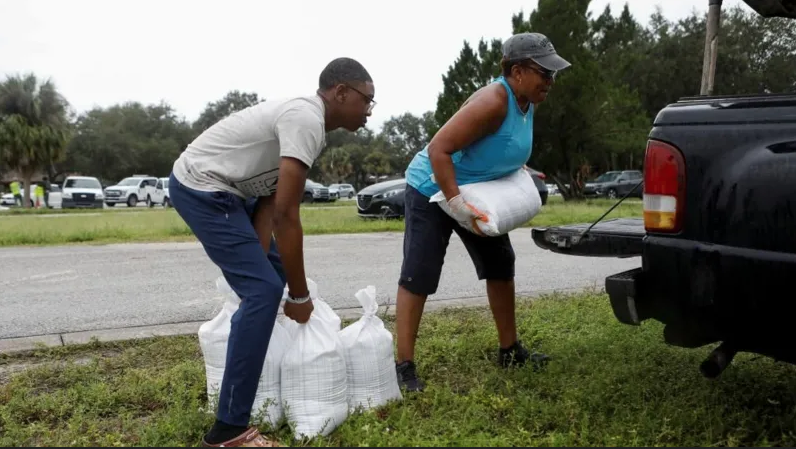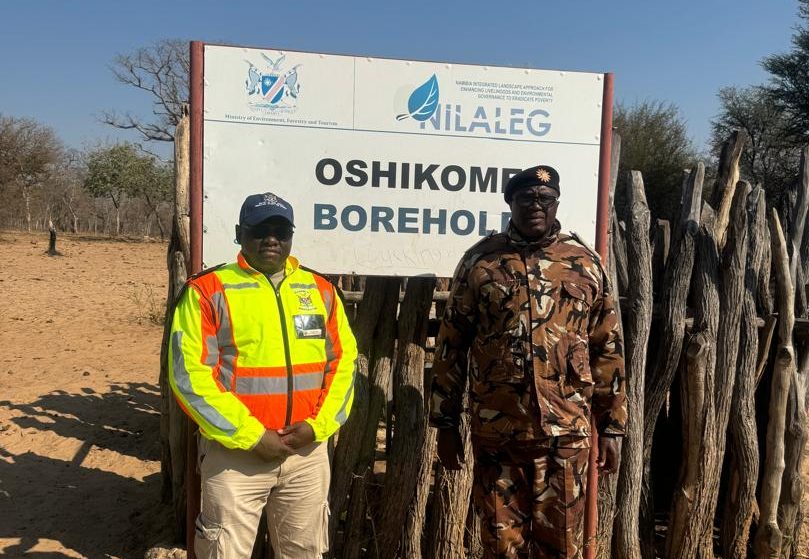‘The gentleman asked for my password’
Written by on June 10, 2024
… PM on how fraudster stole N$159 000 using daughter’s bank account
Prime minister Saara Kuugongelwa-Amadhila last week told the police how a fraudster stole N$159 000 from her in a scheme that involved her daughter’s bank account.
Kuugongelwa-Amadhila, a politician who served as finance minister for 12 years, made a statement to the police last Wednesday, after a fraudster called her that morning.
“On Wednesday 5 June . . . I was contacted by the gentleman . . . who introduced himself to me as [name withheld], claiming to be an official from First National Bank Private Wealth, who wanted to help me to activate a new bank card that the bank would send me,” she said.
According to the prime minister, the alleged banker asked for her internet banking login details and asked her to log in.
“I first refused and indicated that I am not conversant with doing it on the phone. He indicated that he would assist me,” she said.
“l indicated that I don’t know him and there was no way to verify that he was indeed from First National Bank,” she said.
Kuugongelwa-Amadhila said the suspect then led her to believe he was employed at the bank.
“The gentleman asked me for my password and asked me to log in, he then sent me the one-time pin, which he asked me to send him,” she said.
“He started to ask me about my Nedbank accounts, which I refused to give him, indicating I don’t have the banking facility. He encouraged me to give the information, but I refused as I was becoming suspicious,” the PM said.
Immediately after the phone call, the prome minister’s cellphone reported a transaction made from her credit card worth N$127 000.
A payment of N$720 was made and another of N$31 290.
The money was transferred to the account of Kuugongelwa-Amadhila’s daughter, Ndapanda Amadhila, at First National Bank.
“FNB indicated that the payments that were made into my daughter’s account from my accounts were transferred to other accounts or paid out by other means.
“Some of the money was transferred to a Bank Windhoek account. When I contacted them, Bank Windhoek confirmed the withdrawal of N$50 000 by the suspect.
According to Kuugongelwa-Amadhila, Bank Windhoek has failed to confirm whether the other N$50 000 was withdrawn or not, but indicated that the account was frozen.
“The bank notifications sent to my phone are showing the following amounts were transfers: N$127 999 from my credit card, N$31 290-00 from my call account and N$720 from my credit card.
“All transfers were made to the account of Ndapanda Amadhila. The account was opened by me when she was a minor, but when she turned 16 years she went to the bank to delink the account and was told she doesn’t need to open an account or delink it, as that was already done by the bank and that she is in charge of this account,” the prime minister said in the statement.
She said her daughter was never contacted, nor did she provide her banking details or password to anyone.
‘NO AUTHORISATION’
However, the bank indicated that all the money transferred to her account were further transferred to other accounts or were withdrawn by different means.
“Neither I nor my daughter authorised those transactions . . . I reported this incident to First National Bank upon receiving the bank notification of the transaction and asked them to block the account and reverse the transfer made from my account,” she said.
No arrest has been made in the case yet.
The prime minister’s name has been used on more than one occasion in the past by scammers.
In 2022, her office issued a public warning about a scam involving bogus phone calls with fraud-sters seeking financial assistance in the prime minister’s name.
In 2016, her office distanced Kuugongelwa-Amadhila from Facebook accounts falsely opened under her name.
“They (suspects) are sending out messages claiming Kuugongelwa-Amadhila is involved in some business transactions and inviting those interested in such unnamed transactions to contact the office,” her office said.
KAPOFI’S CASE
In 2022, minister of defence and veterans affairs Frans Kapofi was defrauded of N$200 000.
The minister opened a fraud case at the Windhoek Police Station after being scammed by a man pretending to phone from his bank, offering to assist him with his accounts.
The suspect, Owen Mahoto, was arrested and has appeared in court.
‘PROTECT YOURSELF’
Private banks have been providing tips for the public to avoid scams.
According to Bank Windhoek’s website, statistics indicate that fraudsters focus mostly on individuals over the age of 60.
“It is suspected that fraudsters gather information on their victims before they make the first call. Information includes name, address, telephone number and, in some instances, the branch where an account is held. The fraudster then calls the victim, mostly to a landline,” the bank says.
It says fraudsters often use a tone of urgency to convince customers to cooperate.
“These days, fraudsters have noticed that humans are the most vulnerable link in the security chain. As a result, they have shifted their focus to exploit this weakness.
“This has led to what we now call ‘vishing’, which is used on a large scale by fraudsters to target banking customers both countrywide and worldwide.”
Bank Windhoek says one should never reveal or share personal information or information relating to one’s accounts with anyone over the phone, through an email, or via the internet “unless the party is known to you and is reputable”.
“Know that banks will never ask you to confirm your personal information over the phone. If you receive a transaction notification that was not done by you, call your bank and stop all transactions. If you act swiftly, your money may be recovered. As a general rule, do not have high transaction limits.”
The post ‘The gentleman asked for my password’ appeared first on The Namibian.


